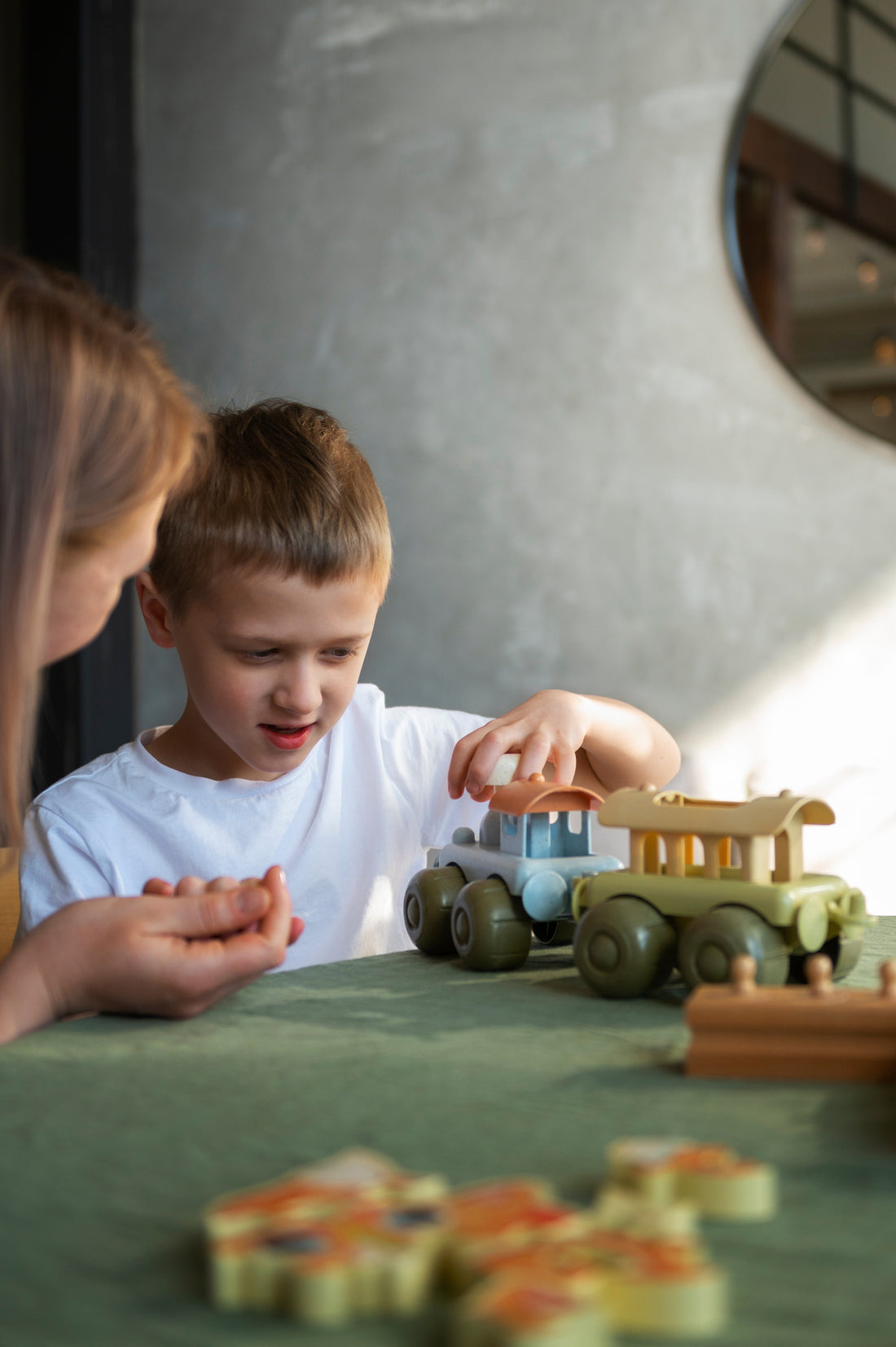
The Timeless Value of Wooden Learning Toys in a Child’s Early Years
Share
There’s a reason wooden learning toys continue to find their place in modern playrooms, even in an age of screens and smart devices. These simple, durable, and thoughtfully designed toys have a kind of magic that doesn’t fade — they grow with your child, offering new lessons at every stage.
Unlike many toys that entertain for a few days and end up forgotten, wooden toys offer something deeper. They’re not just fun — they teach. They challenge children in just the right way, encouraging hands-on discovery, creativity, and independent thinking.
More Than Just Toys
What makes wooden learning toys so effective is that they don’t try to do the work for the child. Instead of flashing lights or pre-recorded instructions, they leave room for a child’s curiosity to take over. Whether it’s a puzzle, a number board, or a color-sorting game, the toy doesn’t give answers — it asks questions.
Children learn best by doing, and wooden toys support that beautifully. They build fine motor skills, help kids understand shapes and sequences, and promote patience — all without a battery in sight.
Calm, Focused Play in a Busy World
Today’s children are often surrounded by overstimulation — fast visuals, constant sounds, and digital overload. Wooden learning toys slow things down. They offer a quiet, focused play experience that helps kids develop attention span, self-control, and deeper problem-solving abilities.
There’s a reason you’ll find these toys in many Montessori-inspired spaces: they align perfectly with child-led, purposeful learning.
Natural Materials, Natural Learning
The feel of a wooden toy in a child’s hand matters more than we realize. There’s a sensory richness to wood — its texture, temperature, and weight make it more engaging than plastic. And because these toys are often open-ended, they invite a wide range of imaginative possibilities.
Not to mention, they’re an eco-conscious choice. Made from sustainable materials, wooden learning toys reflect values many families hold dear — simplicity, safety, and sustainability.
A Return to Meaningful Play
In the end, it’s not about how many features a toy has — it’s about what a child can do with it. Wooden toys support the kind of open-ended play that’s been shown to nurture creativity, confidence, and real-world thinking.
They remind us that learning doesn’t always need to be loud or flashy. Sometimes, the most powerful lessons happen in the quiet moments — when a child is solving, building, imagining, and growing with something as simple as a piece of wood shaped with purpose.